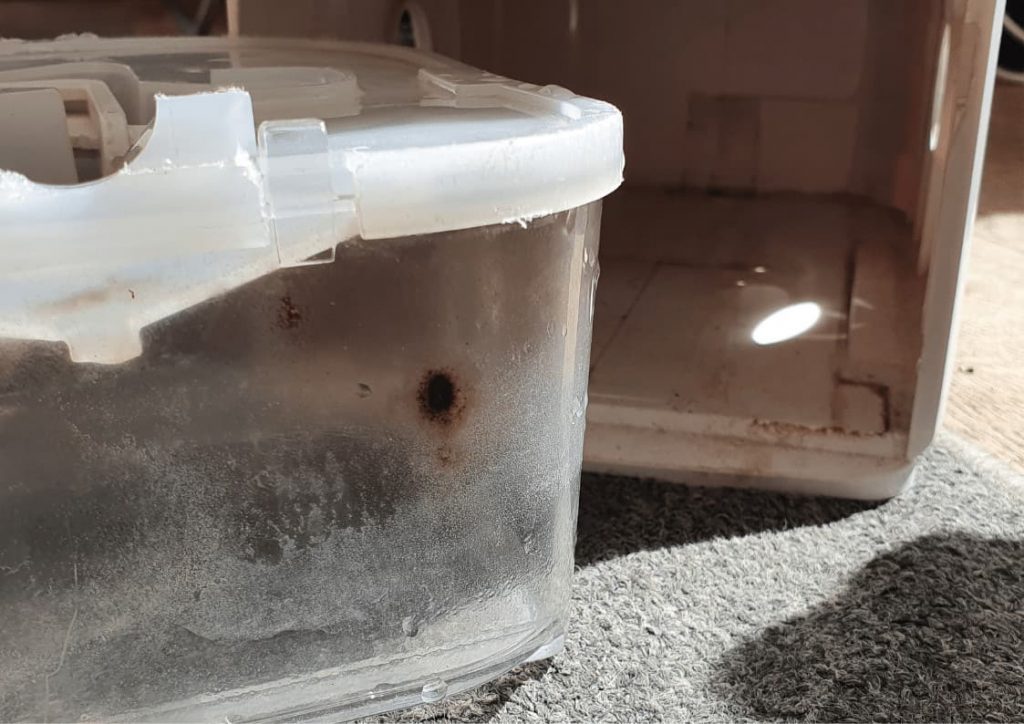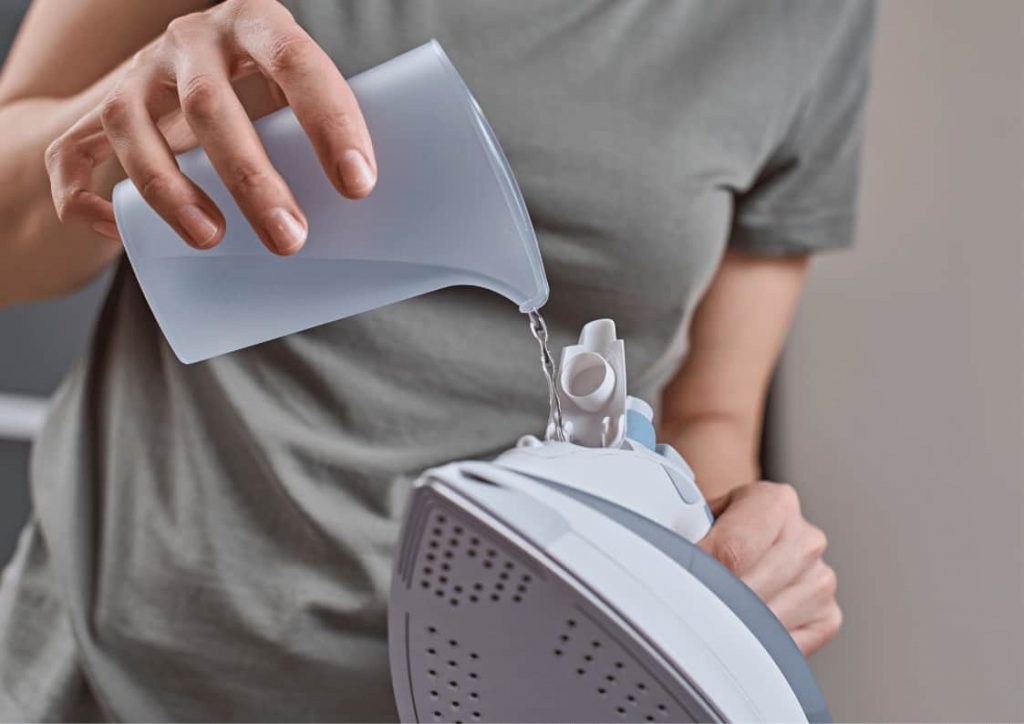Dehumidifiers remove water from the atmosphere by drawing in moist air and cooling it rapidly via a refrigerator style evaporator coil so as to form and collect droplets. This is similar to the condensation which collects on the outside of a glass holding an ice cold drink on a warm day, just on a drastically larger scale.
But does drawing moisture from the atmosphere in this manner generate water free from impurities – essentially making distilled water? Well, almost.
Although moisture held in the atmosphere has left behind minerals and impurities when it evaporated, dehumidifier condensate cannot be considered pure distilled water due to heavy metals introduced by contact with the evaporator coil and molds which commonly exist in the ever damp conditions of the dehumidifier collection tank.
It’s for these reasons that the Environment Agency recommends against drinking dehumidifier water even if it has been boiled.
However whilst the condensate collected in a dehumidifier might not be suitable for human consumption, it still remains a useful resource that can be used for other purposes such as ironing or cleaning surfaces.
How can you purify dehumidifier water?
Being constantly damp and at least room temperature warm, the water container presents a perfect breeding ground for water borne bacteria such as Legionella.
In addition, other contaminants such skin cells, clothing fibers and airborne mold spores are also pulled into the dehumidifier as it draws in moist air.
Boiling the collected water or adding purification tablets are two simple ways to neutralize these biological nasties. However even these steps don’t quite make water harvested by a dehumidifier safe for human consumption.
You see, residues of heavy metals such as copper, aluminum or even lead may have made their way into the condensate after direct contact with the evaporator coil. These metals cannot be removed by either boiling or the use of purification tablets.
The addition of metals isn’t always going to be at a level which will make the water immediately harmful, however heavy metals are toxic and pose many health threats if ingested.
If you do insist on purifying dehumidifier water for the purpose of making it potable it would be a good idea to first use a drinking water test kit to check against Environment Agency Standards (pH, Chlorine, Lead, Copper, Nitrate, Nitrite, Bacteria, Alkalinity, Hardness).

Is dehumidifier water good for ironing?
Steam irons and steam cleaners can be affected over the long term when using a hard water source (one that contains a calcium carbonate of greater than 121mg/L), so using dehumidifier water in your iron is one way to avoid potential blockages caused by this mineral.
Many new appliances that use steam do have in-built anti-calcium features designed to prevent mineral deposits from clogging up the delivery system or mineral stains occurring on fabric.
If you don’t have an inbuilt anti-calc feature and wish to prolong the life of your steam iron you could opt to use dehumidifier water, which is particularly good for ironing as it is free from the minerals which are normally found within tap water.

Is water from a dehumidifier good for plants?
Essential minerals required by plants to grow include potassium, nitrogen, phosphorus and magnesium.
In their natural environment plants source these minerals from decaying organic matter, or surface water that has gathered minerals from other sources before being absorbed by root systems.
Water collected in a dehumidifier is void of essential minerals needed by plants to grow, so whilst it will do your plant no harm you will need to be mindful that the growing medium will be the sole source of minerals and nutrients.
Certainly something to be mindful of if you use semi-hydro soil!
Whilst the same is true for using tap water alone to provide the full complement of essential minerals that houseplants need to thrive, it will provide more (including potassium, phosphorus, magnesium and manganese) than water collected in a dehumidifier.
If you do intend on using dehumidifier water to give houseplants a drink you could supplement it with introduce nutrients and minerals by other means such as seaweed fertilizer or natural organic matter like orange peel.
